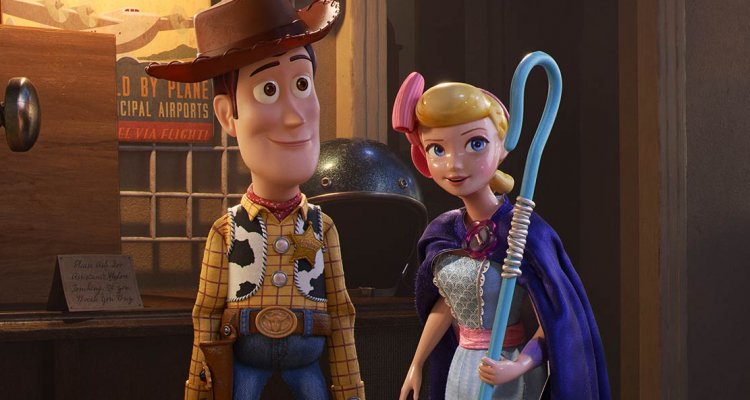“Toy Story 4” is already raking in heaps of praise as many find the fourth chapter to stand shoulder-to-shoulder with the previous three entries. It’s an accomplishment that many will point to when debating the merit in moving forward with a tetralogy. While there were many voices that contributed to sticking the landing on this miracle, most notably Andrew Stanton, Rashida Jones, and Stephany Folsom, I caught up with director Josh Cooley and producers Jonas Rivera and Mark Nielsen to discuss how they confidently steered this ship into port.
READ MORE: ‘Toy Story 4’ Is The Surprising, Poignant Epilogue To Pixar’s Finest Franchise [Review]
While speaking with the filmmakers, I could sense real passion and care went into crafting this story which surprisingly carried a personal touch from Cooley’s own life. During our conversation, we discussed how the messages of the film pertained to their time at Pixar, how they touched on more adult themes than usual, when they knew they had something special on their hands and much more.
The film focuses a lot on adapting to different phases in your life and kind of finding new purpose, and so being veterans of Pixar, how has this message found you in your time there?
Josh Cooley: Wow.
Jonas Rivera: I think that’s a really good question. All of our movies, I think, when they work really well, are kind of just self-portraits and reflections of the people making them. And there’s no doubt, I mean, I’ve been there since the first one, and we’ve all kind of grown up there together, and the studio has changed a lot. We’ve all changed a lot, and, there’s no doubt that it’s seeped into the making of this movie and the story that we’ve told. Personally, I find myself very resistant to change. I like things the way they are. I like my glasses here—
Mark Nielsen: You like Disneyland 1955.
Jonas Rivera: I like Disneyland in the old days, you know? And um, “kids today,” I do have a little bit of that, and so I think there’s some of that now that’s infused into Woody, and watching him struggle with change, and having to adapt. That’s a truth of the world, and I think these movies work when they’re based on truth.
Well that’s the thing, I think the great thing about Pixar films is that adults can take a lot out of them, as well as the kids, but even more so in this one. It really speaks to, the people who grew up with the films, and the adults in general, especially.
Josh Cooley: I think so. I agree with that. For some reason, I can’t put my finger on it, but it does feel like we are hitting more adult themes than usual.
Jonas Rivera: I think so too. They’re up front more, you know?
Josh Cooley: Yeah, maybe that’s what it is, yeah. I mean Woody even just saying “I miss Andy,” that whole walk on with Forky explaining what that means to him. Like that’s pretty adult. I mean, I love it. But it’s nostalgic, right? So it’s all about looking back at his previous life, and you can’t do that when you’re a kid.

